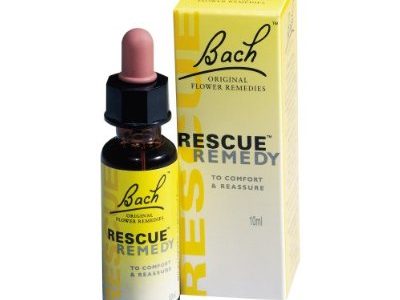 When I was two years old, while standing in line at a grocery store, my grandfather—the man who helped raise me—heard me shout out to a woman in front of us, “You’re fat!” It was something he had uttered in frustration, just moments prior, while attempting to walk down a crowded aisle. Humiliated, he glanced up at the woman and back at me and tried desperately to cover. He pointed toward a row of magazines—one featuring an image of a man in a baseball cap—and cleverly exclaimed, “Yes! That is my hat.”
When I was two years old, while standing in line at a grocery store, my grandfather—the man who helped raise me—heard me shout out to a woman in front of us, “You’re fat!” It was something he had uttered in frustration, just moments prior, while attempting to walk down a crowded aisle. Humiliated, he glanced up at the woman and back at me and tried desperately to cover. He pointed toward a row of magazines—one featuring an image of a man in a baseball cap—and cleverly exclaimed, “Yes! That is my hat.”
My grandfather learned a valuable lesson that day—one which every parent is doggedly taught; children are sponges, and they don’t simply soak up everything they hear. They repeat it, loudly. Of course, the same goes for anything they see or experience, daily. It’s referred to as behavior modeling, or the process of learning behaviors through social observation—watching and listening to what others do or say, and learning to act and speak, accordingly.
Generally speaking, the consequences of a child mimicking a parent’s words or actions during a moment of frustration are no greater than that which my grandfather and I experienced, that day—a slight degree of public humiliation, a chance for him to humbly reflect on his lack of patience and a thoughtful correction for me. But what if you’re co-parenting with an addict? The negative words and behaviors your child might hear and see likely occur more frequently. Consequently, the resulting effects can be lifelong and devastating.
Because—like an innocent, two-year old me—children look to their parents, caretakers and/or guardians to learn how to act and speak, they also define normal as what they experience, daily. If you’re co-parenting with an active addict, your child is learning dysfunction—mood swings, emotional instability, criminal behavior, neglect or abuse—and recognizing it as normal and acceptable. This is why children of addicts struggle with emotional development and various psychological issues, ranging from attachment disorders to depression, post-traumatic stress disorder and even addiction.
When co-parenting with an active addict, your energy is wasted on trying to change them. No amount of begging, nagging or bargaining will sway them into sobriety, and using your child as a pawn or a threat in an effort to achieve that kind of power only enables the addict and psychologically damages your child. Besides, the effort you’ll exhaust trying to convince them will leave you frustrated, disappointed and less available for active parenting.
Instead, your time is better spent working on you—healing yourself from the pain of the situation—and focusing on the overall health and wellness of your child. You can start by finding ways to be proactive rather than reactive, with regard to the addicted co-parent who is likely irrational, manipulative, deceitful, victimizing, defensive and unnecessarily dramatic. Though that is the nature of the disease, it should not become the norm in the life of your child.
Since you have no power over the addict, the only thing you can do is change you and your responses to the dysfunction. If you were an attentive child—like I clearly seemed to be—you will recall a few of the following lessons which your parents or caretakers might have taught you. More importantly, they will help you find serenity in an otherwise chaotic co-parenting situation.
Knowledge is power: You’ll need to educate yourself about addiction—physical and psychological aspects of the disease—via online and print resources. Additionally, there are books addressing the systemic effects of the disease and numerous self-help books available for families and children of addicts, as well as codependency.
There’s safety in numbers: You can’t do this alone. Seek help for you and your child from support groups, offered within your community, and counseling. The latter suggestion may seem scary or even unnecessary, so try to view it in a different way; if your child was in a car accident, but had no complaints of pain, you would still take him to the emergency room to check for internal injuries. The same precaution should be employed, here. Let a professional be the judge of your child’s emotional or psychological well-being.
Keep the house clean: Make your home a sanctuary or toxin-free zone by setting stern boundaries with the addicted co-parent and refusing to allow or engage in dysfunctional behavior of any kind. If they are clearly under the influence of any drug, do not allow them to enter the space. Much like vampires, inviting an addict under the influence into your home renders you powerless. If they appear momentarily clean, but begin employing manipulations, distortion, angry outbursts or victimization, politely ask them to leave, and let them know they can return when they are sober and capable of acting rationally. This keeps your house free of negativity and teaches your child what is and is not acceptable behavior and how to set boundaries, accordingly.
Knowing is half the battle: Empower your child with objective information about addiction and life skills—like communication, boundary setting, conflict resolution, etc.—and equip them with healthy coping mechanisms—like art, theater, sports or journaling. This gives them a chance to understand their co-parent’s addiction as a mental illness, rather than personalizing the absence or dysfunction, and they can make informed decisions, have a sense of confidence and opportunities to advocate for and express themselves in constructive and appropriate ways. Basically, you’re giving them a chance to overcome the adversity.
Safety first: Call the police and a good lawyer, if necessary. Ultimately, it’s always better to be safe than sorry, especially when it comes to your child.
Remembering these five phrases can help you emotionally detach, see the situation objectively, and refuse to engage the addict’s attempts at manipulation and attention-seeking behaviors. You may be powerless over another person’s addiction. But you are not powerless over you, or the physical, psychological and emotional safety of your child. Be the change your child needs to see.






